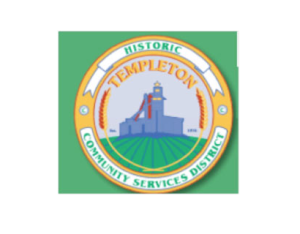Trouble in Templeton Service District
Grand jury report addresses problems at TCSD
Templeton Community Service District investigation highlights issues in 2012:
- Board behaved as a dysfunctional group
- Board did not allow adequate time on agendas for public input
- Board circumvented chain of command by going directly to employees
- TCSD does not have a current set of personnel rules and regulations
- Regular TCSD meetings were canceled and replaced by “special meetings”
- District’s website is not updated in a timely manner
- TCSD does not have a General Master Plan
Origin of investigation by Grand Jury

The Grand Jury received complaints from employees and former employees of the TCSD with regard to alleged misbehavior of some Board members and the TCSD General Manager (GM) and the Board’s alleged unwillingness to provide an adequate forum for public comment during meetings.
Summary of Grand Jury report
As a result of newspaper articles reviewed by the Grand Jury and complaints by employees of the District, the Grand Jury elected to review a number of allegations made against the TCSD.
Among those complaints reviewed were failure to:
• Follow required CSD State Requirements for conducting meetings as outlined in
Government Code Sections 61040 & 61051,2 • require formal budgets and fiscal transparency (Government Code Section 61110),
• Produce regular audits and financial reports (Government Code Section 61118) and
• Use the TCSD website effectively for public information.
In addition, it has been alleged that there was:
• Unprofessional behavior at public meetings;
• Misbehavior of Board members outside the regular meetings;
• A lack of respect towards the staff and employees of the District by some Board
members;
• A culture of cancellations of many regular meetings and scheduling of “special”
meetings;
• No evidence of an approved set of Personnel Rules and Regulations;
• Micromanaging employee issues and circumventing the chain of command by Board members going directly to employees rather than communicating with the GM;
• Inappropriate awarding of contracts for services to the District;
• A lack of performance reviews of employees by the GM;
• A lack of performance reviews of the GM by the Board;
• The failure of the Board to allow members of the public time to speak on issues before the Board;
• The failure of the Board to report to the public regarding actions taken in “closed sessions;”
• A lack of written and consistent policies for employees when handling interaction with the public; and
• Brown Act (Public meeting laws) violations.
Method of investigation
The Grand Jury requested, received and reviewed copies of minutes of the Templeton
Community Service District meetings, the existing policies and procedures, rules and regulations affecting employees, copies of newspaper articles criticizing the District Board and other documents relevant to its investigation.
Interviews were held with members of the press, past and present Board members, employees of the District including the GM, local residents, a member of the Templeton Chamber of Commerce, a member of the Templeton Area Advisory Group (TAAG) and a refuse collection consultant. A total of thirteen interviews were conducted.
Grand Jurors reviewed and evaluated all interviews after they occurred. Written minutes of the interviews as well as the recorded interviews were made available to Grand Jury members not present during the original interviews.
Narrative of investigation

Jeff Hodge, former general manager of the TCSD
The Grand Jury was advised of numerous allegations concerning the lack of complete personnel rules and regulations in the TCSD. This may have resulted in mistreatment of employees by the Board and the GM, failures to respond to complaints by employees, unfair treatment by TCSD Board members when employees appeared before the Board and a lack of support by management. Allegations were made by the TCSD community members as well as by Grand Jury interviewees that certain members of the Board went directly to employees in violation of basic tenets of good persom1el management concerning the chain of command. Other employees were allegedly ignored in their complaints to the Board.
Some employees disagreed with the above allegations or reports, and felt that management properly handled their complaints. They did agree that the Board was rude on occasion toward employees and/or the public, and that the GM should have been more aggressive in supporting the staff.
Members of the media expressed concern about the behavior of the Board and the way the public was treated. There were numerous complaints that the TCSD Board did not allow adequate time for the public to be heard at meetings. Complaints also documented concerns about the way members of the Board treated each other. Some residents of the TCSD and local media expressed concerns that the Board was dysfunctional and that one member of the Board, in particular, was very outspoken, uncooperative and seemed to have a personal agenda to address with other Board members.
The TCSD website was perceived as being inadequate in reporting the District’s activities. Both the media and a Board member objected to awarding the new website contract to an out-of-state company.
There were also concerns about the number of Board meetings that had been cancelled. Twelve meetings were cancelled and rescheduled between January l0th and September 18th, 2012. Notice of these cancellations was posted on the website at the last minute and may have contributed to low public attendance at the rescheduled meetings.
Current Board members were very mixed in their comments. Some felt that problems stemmed from one individual who they perceived to be “out of control,” had a personal agenda and would not cooperate with some members of the Board. Some Board members felt that this particular Board member was also rude to the staff and to the public. It was stated that the GM did not speak up on behalf of the employees with the Board.
Other Board members expressed concerns that there were important issues not being addressed:
• Board training,
• Budget management,
• TCSD General Master Plan development,
• Increasing public access and input, and
• Last minute meeting postponements.
Some current members of the Board felt that many of the issues that prevented the Board from being a positive and effective influence in the community could be resolved, especially with the presence of a new Board president and GM.
Some citizens of the community were very concerned that the Board was violating the Brown Act by:
• Not reporting information and action taken in “closed sessions” of the Board,
• Not allowing members of the public to speak at meetings, and
• Not allowing the public to speak on matters discussed in the closed session agenda.
Citizens emphasized that the Board functioned successfully under a previous GM. One member of the TAAG felt that the Board did a good job, but emphasized she had little or no direct contact with the Board and dealt primarily with the GM. However, she did see a need for a stronger connection between the TCSD and TAAG.
When interviewed, the GM was very defensive about the complaints and allegations made against him and he was openly bitter about his relationship with one Board member. His bitterness manifested itself when he announced at the beginning of the interview that he was resigning from the District. Throughout the interview, he directed most of his negative comments at one particular Board member.
The GM was asked if Board members had been rude to staff and if they had violated the chain of command. He informed the Grand Jury that there was only one member of the Board who was “impossible.” He stated that at times Board members had gone directly to staff with concerns.
The GM felt he treated the employees fairly. The GM explained that the Board was in the process of developing a set of persom1el rules and regulations. He said that the major problem was some of the new policies he implemented. He stated a number of employees resented having to change their way of conducting district business.
The Grand Jury questioned him about TCSD contracts. He felt that the contracts that had been awarded by the TCSD were handled properly and that he had the authority as the GM to contract for services. He stated that the contracts that had recently been awarded were mostly the effort of staff and he had relied on staff input.
The Grand Jury interviewed a refuse management consultant because of complaints about the refuse contract. The consultant spent a great deal of time going over the contract with the Grand Jury, analyzing the pros and cons, and concluding that the community of Templeton had received a very good contract based on his experience as a waste hauler. All of the interview comments by other witnesses concerning refuse were in agreement with the consultant’s assessment that the refuse contract was positive for the community.
The TCSD engineer was interviewed and she outlined the work currently being done in the District with the water and sewer system. Detailed information was provided regarding the general plan and ongoing work on the project. According to the TCSD engineer’s timetable for completion, work is on schedule.
Grand Jury’s conclusions
Californians insist on fair access to decisions made by Community Service Districts and to their decision makers. California statutes that regulate procedures include the Brown Act (local officials’ meetings must be open and public), the Public Records Act (insuring access to government documents), the Political Reform Act (requiring disclosure of economic interests),and a myriad of statutory requirements for public notice, public hearings, protests and elections.
It appears that the number of regularly scheduled meetings cancelled and rescheduled as “special” meetings follows the letter of the law, however, they may not fulfill the intent of the Brown Act. Oftentimes notice is brief, and persons who plan on attending regular meetings are not able to reschedule appearances on short notice. Residents of the TCSD should be the first priority of the Board.
It seems that the Board does not provide adequate time for citizens to have input on agenda items, nor do they provide ample time or the opportunity to speak to items on the “closed session” agenda. In fairness, some of the members of the newly elected Board recognize this problem and they may better address the needs of the citizens in the future.
It also appears to members of the Grand Jury that one Board member has contributed to the general unrest within the TCSD. There was ample testimony that the Board member in question has been rude to the public, has verbally attacked the staff, including the GM, and has alienated other Board members. The Grand Jury did not find these actions to be illegal; however, this behavior did little to enhance relationships among the current members of the Board.
An additional problem that came to light was the implementation of new policies and procedures in the District for employees, and the difficulty that some employees had with the changes made by the GM. It was obvious to the Grand Jury that some longtime employees were having trouble with the changes, and that the GM was making no effort to allow employees time to adjust to the new procedures.
Based on interviews it appears to the Grand Jury that the refuse collection contract is not an issue in the community. Additionally, the TCSD seems to have a good handle on the General Plan for sewer and water changes that will be forthcoming.
The November 2012 election of a new majority of members to the TCSD presented the Board with an opportunity to look carefully at why voters chose to make a major change in leadership.
It also offered an opportunity for the Board to address the allegations made by the press, local residents, and past and present employees of the District.
Grand Jury findings
1. The 2012 Board of Directors of the Templeton Community Services District has behaved as a dysfunctional group to the detriment of the community.
2. The TCSD Board of Directors has not allowed adequate time on their agendas for public input.
3. The TCSD Board of Directors cancels far too many regularly scheduled meetings, and replaces them with “special” meetings, thus depriving many members of the public the opportunity to be present at the meetings.
4. Some members of the Board circumvent the “chain of command” with the GM by going directly to employees.
5. The public is concerned that business matters are being discussed during “closed sessions” and not being properly reported to the public.
6. The TCSD does not have a current set of personnel rules and regulations for employees.
7. The GM did not adequately involve employees in the change process.
8. The GM did not appear to support employees when they were verbally attacked at public meetings by Board members.
9. The Grand Jury finds that the Board has not had adequate training in management techniques as evidenced by their dealing with District employees, their responsibilities to the public as it relates to public meetings, and their responsibility to adequately evaluate the performance of the GM.
10. The Board does not hold the GM accountable for evaluating the employees of the District on a regular basis.
11. At the time of the Grand Jury’s investigation, the District’s website had not shown approved minutes of Board meetings in a timely manner, and had not provided current and relevant budget information for the public.
12. According to documentation provided to the Grand Jury, the TCSD does not have a General Master Plan.
Grand Jury recommendations
1. The TCSD should hold a team-building workshop for Board members. The workshop should be conducted by an outside facilitator and include business conduct, decorum on the Board, working with the staff and employees, and dealing with the public. There should be particular emphasis on collegiality among the Directors.
2. Members of the Board should receive specific training on the Brown Act and related state mandates goeverning the conduct of CSDs.
3. The TCSD Board of Directors should allow adequate time at meetings for public comment.
4. The TCSD Board of Directors should minimize the number of cancelled meetings and “special” meetings.
5. The GM should follow through with the development of a comprehensive set of personnel rules and regulations for all employees.
6. The GM should be held accountable to ensure that all employees receive a formal evaluation at least once a year.
7. The Board should conduct a formal evaluation of the GM at least once a year especially in regard to personnel management.
8. The Board should ensure that minutes of all Board meetings are placed on the website in a timely manner. Additionally, updated information regarding the budget should be readily available on the website for residents and not just an annual budget document appearing at the beginning of the year.
9. The Board should develop a General Master Plan for the TCSD as required by state law.
Response of TCSD is required
The Templeton Community Services District Board is required to respond to Findings 1-12 and Recommendations 1-9. The responses shall be submitted to the Presiding Judge of the San Luis Obispo County Superior Court by September 13, 2013.
Top stories June 12, 2013
Comments
Scott Brennan is the publisher of this newspaper and founder of Access Publishing. Follow him on Twitter, LinkedIn, or follow his blog.





























